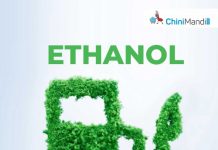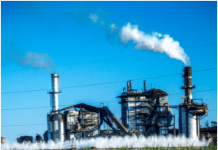Several major automakers, Maruti Suzuki, Hyundai Motor India Ltd (HMIL), Tata Motors, Mahindra & Mahindra (M&M), and Toyota Kirloskar Motors (TKM), are ramping up efforts on flex fuel, following a recent statement by Road Transport and Highways Minister Nitin Gadkari. Gadkari indicated that the upcoming Corporate Average Fuel Efficiency (CAFE) regulations would offer equal consideration to both electric vehicles (EVs) and flex fuel vehicles. The new CAFE 3 norms, set to take effect in April 2027, will extend regulatory incentives to flex fuel vehicles that run on petrol-ethanol blends, similar to those granted to EVs, reported The Times of India.
Flex fuel vehicles use a mix of petrol and ethanol, ranging from 20% to 100% ethanol. Gadkari’s remarks follow a previous meeting with the Society of Indian Automobile Manufacturers (SIAM), where he encouraged the industry to make flex fuel vehicles more appealing to Indian consumers, drawing inspiration from Brazil’s successful adoption of ethanol-based fuels.
At the 2025 Bharat Mobility Show, automakers showcased flex fuel models like the Maruti Suzuki Brezza, Toyota Hycross, Hyundai Creta, Tata Punch, and Mahindra XUV 3XO, all capable of running on ethanol blends of up to 85-100%.
“Strong hybrid vehicles with petrol engines typically offer 40% to 50% better fuel efficiency than conventional petrol cars,” said Sudeep S Dalvi, Senior Vice President and Director (Technical & Purchase) at TKM. He noted that the improved efficiency of strong hybrids could more than offset the mileage loss from using E100 fuel, while also reducing carbon emissions. He expects the introduction of flex fuel vehicles to align with evolving government policies.
Maruti Suzuki’s product roadmap for 2030 includes making 25% of its lineup compatible with E20 fuel (20% ethanol blend), while another 25% will consist of hybrid electric vehicles (HEVs). The company currently offers two HEVs — the Grand Vitara and Invicto — both powered by Toyota’s Strong Hybrid Technology.
This initiative is aimed at decreasing India’s reliance on crude oil imports, lowering vehicular emissions, and encouraging the use of domestically produced ethanol.
CAFE norms set targets for the average carbon dioxide (CO2) emissions per kilometer for all passenger vehicles sold by a manufacturer within a year. These regulations are designed to push automakers towards offering more fuel-efficient vehicles. The current version, CAFE 2, remains in effect until March 2027.

















